When it comes time to retire, there is a segment of the American population that considers relocating from the place they call home, and for some, retiring in Appalachia offers the perfect blend of natural beauty, peaceful living, and small-town charm. Many are seeking milder weather and an easier lifestyle. Florida and Arizona have long been retirement destinations, with their main draw being that they are snow-free.
Increasingly, however, people are drawn to places less commonly thought of as retirement areas. Florida’s sub-tropical climate might be considered too hot or humid, while the desert Southwest is too arid and even hotter. The Southern Appalachia region, especially North Georgia, Tennessee, Kentucky, the western part of Virginia, North Carolina, and West Virginia, has become a popular destination for these people. And with good reason! The area offers much of what retirees are looking for at prices that make good economic sense.
Recent years have seen an influx of retirees to Appalachia, particularly from Florida. Between April 2020 and July 2022, retirement and recreational counties in southern Appalachia experienced a population growth of 3.8%, surpassing the national average of 0.55%. This trend reflects a desire for more affordable living and a slower pace of life.
But Appalachia isn’t Florida. Let’s take a look at what the region does and not offer retirees.
Why Consider Retiring to Appalachia?
Earlier trends saw retirees cashing in on huge real estate gains in northern states and moving to an easier, snow-free lifestyle in sunny climes like Florida and the American Southwest. The influx of comparatively well-off people from “up north” drove up housing prices, stretched infrastructure to capacity or beyond, increased urbanization, and increased traffic. Suddenly, “another day in paradise” started to look like another day back home. And not in a good way.
Retirees grown tired of the one-season aspect of traditional vacation locations, and the increasing population and traffic, have started looking to parts of the country known not for retirees but for working-class and rural values and a simpler life.
People are retiring to Appalachia for the following reasons:
Friendly people. One of the first things visitors and newcomers notice about the people in the Appalachian Mountains is how friendly they are. It is a part of the Appalachian and Southern culture to be polite and friendly to others. They will go out of their way to make a newcomer comfortable and feel welcome. In general, people are welcoming of outsiders, provided they are respectful of the local people, traditions, and way of life. After all, no one likes a disrespectful visitor.
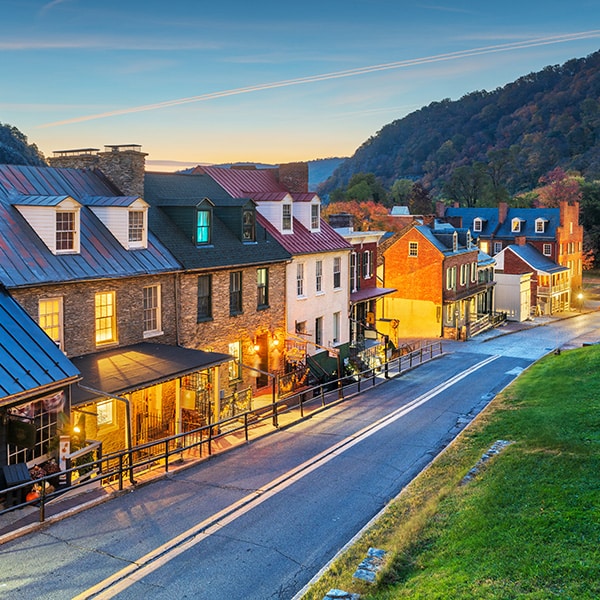
Harpers Ferry, West Virginia
Quaint towns with charming downtown areas. Many of the old mountain towns in Appalachia have experienced a Renaissance since the outside world (i.e., retirees and remote workers) has found them. Many town centers, typically focused on a town square or traffic circle with historic buildings surrounding it, have been renovated to attract the thousands of visitors to flock to the area. Many of these diminutive downtown areas, such as in Blairsville, Dahlonega, and Ellijay, Georgia, are the hub of local restaurant, coffee shop, and curio/antique store life. They are well worth the visit. (See our TikTok on Dahlonega here.)
Four seasons. The one-season states offer year-round good weather. After a while, some transplants find the lack of change monotonous. Many confess that they can’t keep track of time because there are no seasonal landmarks. “Every day looks pretty much like every other one, which means sunshine and good weather,“ says David Gallagher, a transplant to Florida from Long Island, New York. “When the holidays come around, you start wanting the kind of white Christmas that you grew up with, but that isn’t in the cards in Florida, but it is in Tennessee.”
Much of Appalachia experiences snow in the winter, which follows breathtaking displays of autumn colors. Summers can be hot and humid, but compared to Florida, they are mild. Northern states, such as Illinois and New York, experience more severe winters, characterized by significant snowfall and colder temperatures. Retirees seeking seasonal variety without extreme weather may find Appalachia appealing.
Reasonable cost of living. Appalachian states enjoy a lower cost of living compared to more populous areas. West Virginia and Kentucky have cost-of-living indices below the national average.
Florida’s cost of living is also higher than the national average, particularly in housing and healthcare expenses. For reference, New York’s cost of living index is 148.2, the second-highest in the country. Grocery prices are reasonable, and the price of gas is typically in line with the East Coast region outside of New York, New Jersey, and New England. What is missing is variety. There aren’t Costcos in every town, and there may be only one grocery store option nearby.
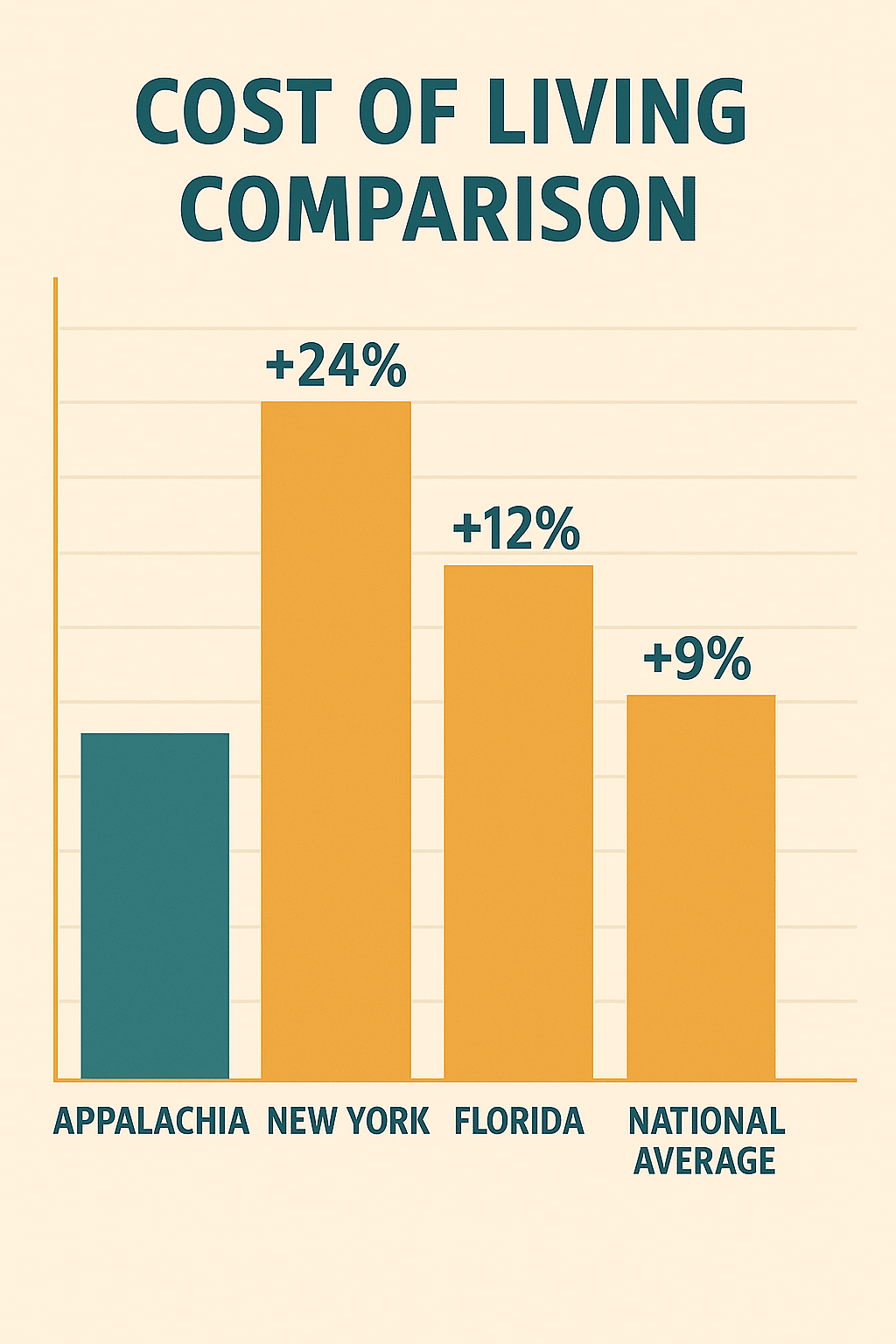
Lower real estate prices. Appalachia isn’t the poverty-stricken, depressed area it was even one generation ago. A steady stream of out-of-state retirees and remote workers has driven prices upward, but housing affordability remains a significant draw in Appalachia. For instance, West Virginia’s median home price stands at approximately $119,600, making it one of the most affordable states in the U.S. In some of the better-known locations, such as Blue Ridge, Georgia, housing prices are so high that young people must consider relocating to afford even a modest starter home or apartment. Compared to some of the places retirees are coming from, Florida’s median home price is around $422,500, while New York’s is approximately $373,880. Illinois offers a middle ground, with median home prices varying by region but generally higher than those in Appalachia.
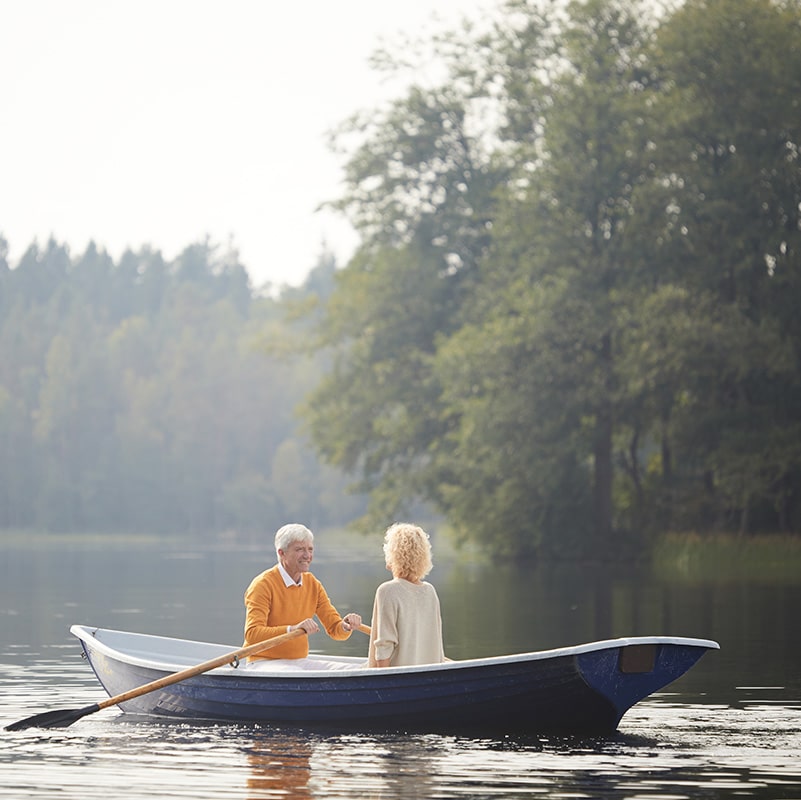
A simpler life closer to nature. During the COVID pandemic, there was a significant movement of people, especially remote workers, from urban areas to Appalachia. Reasons for this were twofold: first, to be closer to nature; second, to get away from large population centers. Roughly 42% of Appalachians live in rural areas, compared with 20% of the national population. During COVID, the idea was that if no people were around, then the disease would be more difficult to catch. Post-COVID, many of these remote workers, finding the country a little too remote, are returning to the cities from which they escaped.
Finding communities with similar values. As the United States grew more politically and socially polarized, people of all types began to seek out areas where residents shared similar values. Conservatives have moved to red states, and progressives have moved to blue states. Appalachia is, broadly speaking, red. People here are tolerant of others’ political views and other ideas. However, they do not take well to outsiders trying to change what has been their way of life for close to three hundred years. On average, Appalachians are more religious than the rest of the country, overwhelmingly conservative in philosophy and practice, respect free speech, and are strong proponents of the Second Amendment. Firearms are a way of life, and are used for hunting, sport, and self-protection. Gunfire from target practice and hunting echoes throughout the mountains. If that bothers you, stay away.
Retirees who espouse the same values will find a warm and inclusive community in Appalachia. Many come from high-tax states with services that do not adequately reflect the amount of money invested in them. Many have had restrictions placed on what they believe to be their unalienable rights. Those people will love Appalachia.
The Impact of Retirees on Appalachia
The migration of large numbers of newcomers to Appalachia is profound, affecting everything from housing costs to culture, from traffic patterns to politics. It has been good and bad, depending on who and where you ask.
Traditionally, Appalachia was a functional region. Generations of people lived there, working on farms in the country, in mines and logging in the mountains, and in small factories in the cities. People here had deep roots, tied to the land and its rich history. It wasn’t a vacation or relocation destination for people who had no function except to enjoy their time after they worked. There was no “after I finish working” in Appalachia.
When people from other states began coming to the region, they looked not for productive farm land or a place to raise a passel of kids, but rather for a place to build a new home or log cabin. Their connection to Appalachia was casual and convenient.
New home development turned former farms and “useless” land (like wooded mountaintops, which had no appreciable agricultural value) into cabins and over-55 communities. Growth contributed to property and sales tax income for local governments, which in turn encouraged further growth.
Small towns grew bigger. Chain restaurants and national big-box stores opened, supplanting smaller, local businesses, but at the same time provided much-needed jobs and a greater variety of shopping options. Roads and other infrastructure were expanded to meet the demands of traffic and utility usage.
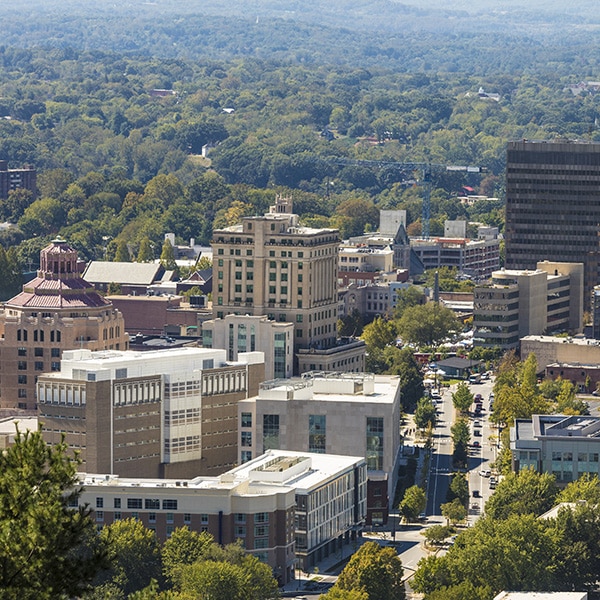
Asheville, North Carolina
All of this brought jobs. Money flowed into communities that had been cash-strapped for decades and that had been losing their working-age populations to bigger cities.
Access to Healthcare
Healthcare is a topic of great concern for persons of retirement age. Access to healthcare in Appalachia presents challenges. Recent statistics indicate that the region has 12% fewer primary care physicians and 26% fewer dentists per 100,000 residents compared to the national average. Appalachia experiences higher rates of chronic diseases, including heart disease, stroke, and diabetes. While some areas have made strides in healthcare delivery, rural locations may have limited access to quality healthcare options.
Retiring to Appalachia could mean you will be far from the amenities you are accustomed to in bigger cities and regions. Depending on the location, hospitals in one county may be small or of poor quality, necessitating a trip outside the county for services. Specialists tend to cluster around better hospitals, so visits to anything more involved than a general practitioner will require a drive.
Finding accurate reviews of healthcare facilities and professionals can be challenging. Most online review sites like Google or HealthGrades either have rave reviews from long-time patients or low marks from disgruntled ones. Community-focused Facebook pages and referrals from neighbors are typically the most effective ways to find reliable, uncensored information.
If you are gravely injured or in some form of distress, you will likely be airlifted to an urban area with a trauma center hospital. For example, in Blue Ridge, Georgia, in the North Georgia mountain county of Fannin, life flights are commonplace for injuries that cannot be treated at the local hospital or the nearby regional facility. Patients with grievous wounds are sent by helicopter to Erlanger Hospital in Chattanooga.
Insurance Costs
Homeowners’ insurance expenses tend to be lower in Appalachia compared to states such as Florida and New York. There are no hurricanes that batter Florida or other coastal locations, and tornadoes are not common in the mountains. Damage from flooding and tree falls is more common. Auto insurance rates are as variable here as they are in other locations, with driving history and vehicle type being the most significant factors in determining the cost. Some sources indicate that auto insurance prices in certain Appalachian states are higher than in other states. However, prices in rural areas are generally lower due to lower traffic density and population.

Crime, Drugs, and Mental Health
Retirees are no different from the rest of the U.S. population in their desire to avoid high-crime areas. Seniors are particularly vulnerable to violent crime and fraud schemes, so safety is of the utmost importance. Appalachia is generally lower in crime than other parts of the country, partly due to its rural nature. Crime rates vary across Appalachia. States like West Virginia and Kentucky report lower violent crime rates compared to national averages. However, crime rates can differ significantly between urban and rural areas within the region. In comparison, Florida and New York have higher overall crime rates, particularly in densely populated urban centers.
Low crime statistics are good news. However, certain social issues contribute to crime in some parts of Appalachia. Top of the list is drugs. Drugs, especially methamphetamine and Fentanyl, are all too common in much of the United States, but have hit hard in the small mountain towns and rural areas of Appalachia. Cooking meth in small home-built laboratories supplanted making moonshine for the do-it-yourself criminal entrepreneur.
Mental illness is another significant issue in the region that can impact the overall quality of life when retiring to Appalachia. Appalachian Medicare recipients reported feeling depressed at a rate 16.7% higher than in other U.S. studies, and some local studies have shown the rate to be as high as 44% in some populations. According to the American Psychological Association, the suicide rate in Appalachia is 17% higher than the national rate, with rural residents 21% more likely to commit suicide.
Who is Retiring to Appalachia?
It will not surprise those who live in Appalachia that Baby Boomers and Generation Xers make up the biggest percentage of the new retired residents. Baby Boomers and Generation X together make up just under 40% of the US population. They account for around 140 MILLION people. Many Boomers have already retired, but the youngest of them are just finishing their careers. Meanwhile, the youngest Gen Xers are entering their retirement years. All are looking for the ideal place to spend the rest of their lives.
Well, at least part of the rest of their lives.
The Birth of the “Halfback”
Boomers and, to a lesser extent (so far), Gen Xers share the preferred retirement model in which they split time between their “ideal retirement location” and wherever their kids and, perhaps more importantly, grandkids live.
In the late 1990s and early 2000s, that ideal was found in Florida and Arizona. Waves of Baby Boomers and now Gen Xers migrated from the upper Midwest and northeastern states to Florida. Their children remained in places like New York, Illinois, or Massachusetts, where they married and began their careers. As their children began having children, spawning much-revered grandchildren, this group of retirees began migrating back to their home states.

But not all the way home.
Back home would mean snow and higher taxes, and if being honest, grandkids that would be dropped off at any time, turning retirement into an extended babysitting session. The answer was to go halfway home. Winter in Florida, summer in…where? North Georgia! Tennessee! Kentucky!
Thus, the term “halfback“ was coined. Halfbacks go halfway back home.
Don’t Be a Halfback…In Attitude
To be honest, ‘halfback‘ is not a term of endearment to people who grew up in those areas where halfbacks tend to settle. The people of Appalachia don’t do anything halfway, and they don’t respect people who can’t commit wholly to whatever it is they are doing, from where they live, to work, family, and religious devotion. Anything.
But, no one pretends that halfbackdom is not a reality. Those retiring to Appalachia who embrace the culture, values, and people are welcomed, not surprisingly, wholeheartedly. They are taken in, and many become highly respected, productive members of the community.
There are a considerable number of people who come to Appalachia solely because it’s cheaper than where they were, closer to the grandkids, and boasts four distinct seasons. And it’s a pretty area, which is a plus. They don’t embrace the culture, history, and people (read our blog about the Appalachian Mountains). In the worst cases, they not only don’t embrace it but dislike it or look down on the “simple people” who live there.
Some make the mistake of trying to change it. They appear to take the approach that the locals, despite a couple of centuries of doing things their own way, just don’t know better. Please don’t make this mistake. Come here because you love the landscape, the history, and the culture. Don’t compare it to where you came from, and never allow the words, “that’s how we did it back home,” to slip from your lips.
Retiring to Appalachia
What Halfbacks (and others) Find About Appalachia and its People
Here are some general observations we often hear:
- Everyone is friendly. The default setting for people in Appalachia is friendliness. In casual social settings, like when meeting someone on the street or on line at a store, Appalachian people will say hello. Or hey. Or good morning. Or How’re you? It’s just politeness. Failing to acknowledge a greeting is the height of rudeness. So say hey back, or at least just nod and smile.
- The land is beautiful, and the people care about it. There are few places in the United States that are as beautiful as the Appalachian Mountains. And there are few people more connected by history and culture to the land. People here truly love where they live. They know the names of each creek, every hill, even the trees and fields. Oral history has handed down a rich pageant of facts about places and the people who do and did call them home. The land, the water, the mountains, all are personal to the people of Appalachia. That is why development is often met with vocal and impassioned resistance. In many cases, it is seen as a takeover, and the people who come after it as invaders.
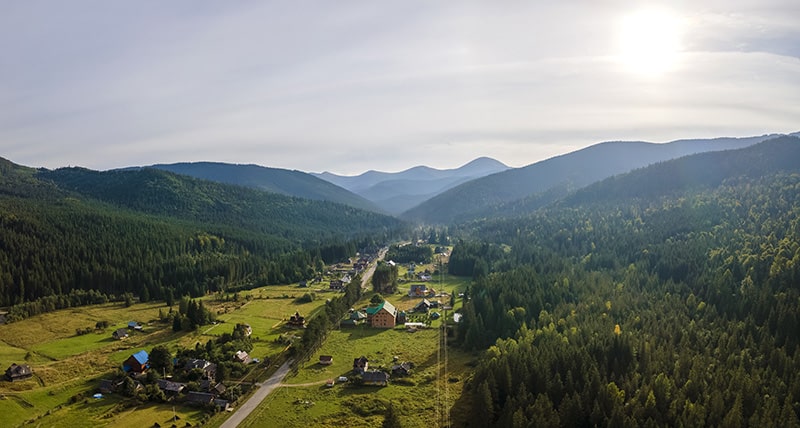
- There are seasons. And weather. If you are looking for a place to retire that has all four seasons, Appalachia is it. Depending on where you are, winters can be relatively mild or fierce. In the North Georgia areas of Ellijay, Blue Ridge, Blairsville, and Dahlonega, winters can be bitterly cold but without much snow. Head north into the Blue Ridge mountains and further into parts of Virginia and West Virginia, and snow is almost guaranteed, especially at elevation. Of course, mountain winters are the price to pay for the glorious autumns, when the slopes become a festival of color. There are several ski areas in North Carolina, such as Sugar Mountain (the largest), Beech Mountain, Appalachian Ski Mountain, and Cataloochee Ski Area near Asheville.
- Housing prices are competitive. The average price of a house varies by state and locality, but broadly speaking, you get more for your money in Appalachia. Some areas, like Blue Ridge, Georgia, are extremely expensive because of the influx of well-off retirees and the pricey second-home market, but many mountain areas remain quite reasonable. Many are still well below the national average. For the same price, it is often possible to get acreage and outbuildings in addition to a home.

- Skilled craftspeople abound. There are skilled craftsmen and craftswomen all over the United States, but there is a longstanding tradition of working with tools and hands to make beautiful or functional–or both–items. The abundant forests yield choice species of wood, so it’s not surprising that woodworking and carpentry are particularly well developed here. Whether you are building a home, adding a deck, or looking for handmade furniture and decorations to go inside it, you will find a vast community of builders and craftspeople to help.
- Self-sufficiency is a prized characteristic. You will find people in Appalachia know how to take care of themselves. They can fix things when they break. They are ingenious when it comes to making do with what they have. They are loath to ask for help unless it’s clearly something they can’t do alone. And then their neighbors, friends, and distant cousins will all show up to help. The people of Appalachia developed habits and practices over generations of hardship and poverty that have become common sense for many years. Now, much of what is considered standard practice is often viewed as “prepper” behavior today. Nah. It’s just making sure you have what you need in case things go bad.
- Strong work ethic. These are working people. They judge someone on how hard they work and how well they provide for their families. Laziness is not respected.
People are tolerant, but not pushovers. Most rural people keep to themselves. While they certainly have an opinion about most everything that goes on around them, they aren’t quick to judge, at least not publicly. Don’t mistake their lack of commentary as approval. Appalachians will put up with most anyone’s foolishness, until it threatens their way of life and well-being. - They respect authority, but not authoritarianism. Historically, the people of Appalachia have been fiercely independent. In fact, the reason most of them ended up in the deep mountain hollers was to escape the overbearing British and Colonial governments 250 or so years ago. That spirit still survives today. Most are respectful of law enforcement, teachers, preachers, and elders. Few respond well to being pushed around by anyone. That’s an important lesson for people considering retiring to Appalachia.
- Not much diversity. Appalachia is one of the least diverse areas of the United States. In part, that’s because the region has historically been poor, with limited job opportunities, which has been a disincentive for growth. The majority of early settlers and their descendants were Scottish, English, and Scots-Irish, with smaller populations of Germans, and Dutch. There has been very little movement to the area by minorities, except for fairly sizable Latin American populations in some areas, drawn originally by mills and factories. The small family farms in the region were not plantations, so there has been only a small Black community for most of its history.
Misconceptions Halfbacks (and others) Have About Appalachia and Its People
These are some opinions we’ve learned are fairly common among new residents and visitors:
- The people are uneducated. There is only a 4% difference between the number of Southerners with higher degrees and the national average. (Statistical Atlas) Southern states have a higher high school graduation rate. And some of our nation’s greatest writers are from the South: Mark Twain, William Faulkner, Cormac McCarthy, Alice Walker, and Harper Lee.
- Old-fashioned. To some degree, this is not a misconception. If old-fashioned means polite, respectful of elders, supportive of law enforcement and other authority figures, then yes, the people of Appalachia are old-fashioned. People of Appalachia are as modern as any other Americans, but they also revere traditions. They subscribe to the “if it ain’t broke, don’t fix it” philosophy.
- Everybody is a Bible-thumper. The label “Bible-Thumper” suggests someone who is aggressive and overly zealous in his or her Christian faith.

Of course, some people are. Most people are not. Many in Appalachia are unabashedly religious. They attend church on Sundays and occasionally on Wednesday nights. They will likely ask you if you’d like to attend. It’s part of the culture. If you do not go to church or practice a different religion, no one will care.
- They have a funny accent. Americans tend to think other people have accents when, in fact, we all do. It’s as easy to pick out a Long Islander or Chicagoan as it is to identify a Southerner. There is no “Appalachian accent.” Appalachia spreads from Pennsylvania to Alabama, and the accents and other speech characteristics change with each region. Though it’s not as idiosyncratic or pronounced as it was a generation or two ago, accents in Appalachia change frequently. Time was, folks on the other side of the mountain or in another holler had a noticeably different accent. Don’t confuse a strong accent with a weak mind.
Retiring to Appalachia: Should You?
If you’ve visited and fallen in love with the region, you know that Appalachia presents a compelling option for retirees prioritizing affordability and a temperate climate. If the heat of Florida does not appeal to you, then this may be the place. Lower real estate costs and a lower cost of living make it a great option. But, remember Appalachia is not tailor made for retirees. It is a living, working part of the country that has been adopted by some retirees and remote workers. Some have left after a short time, once they realize that the Appalachian Mountains are not for everyone. But for those who love it, who find in the region the home they always knew was out there but they could not find, then Appalachia is the perfect place to retire.
Note: This guide provides a general overview about retiring to Appalachia. For personalized advice, consider consulting financial advisors, healthcare professionals, and local real estate experts.



0 Comments